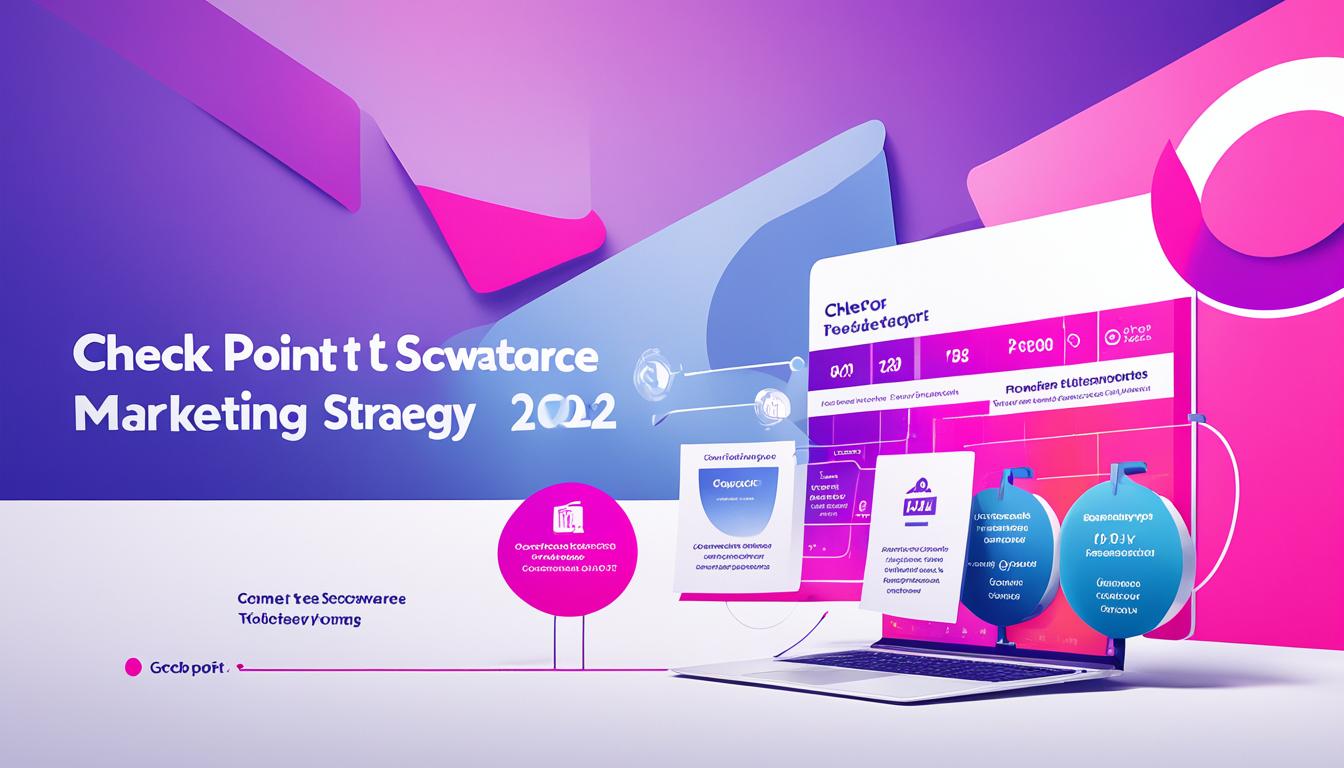Wolters Kluwer is a prominent leader in the information services industry, renowned for their commitment to delivering value and returns to shareholders. In this case study, we will dive into the intricacies of Wolters Kluwer’s marketing strategy and explore how they have harnessed digital marketing trends, data-driven marketing, and customer engagement to drive business growth.
Through their strategic approach, Wolters Kluwer has witnessed improved organic growth and operating margins. Their expert solutions have accounted for a larger portion of their total revenues, demonstrating their dedication to enriching their information products and driving operational agility.
While the COVID-19 pandemic briefly impacted their financial trajectory, Wolters Kluwer has swiftly recovered and met most of their financial goals. This resilience further exemplifies their adaptability and strategic prowess in navigating challenging circumstances.
In this case study, we will dissect the key elements of Wolters Kluwer’s marketing strategy, highlighting their focus on customer engagement, leveraging data-driven marketing and analytics, content marketing strategies, social media marketing tactics, online advertising strategies, and SEO best practices.
Key Takeaways:
- Wolters Kluwer’s marketing strategy focuses on digital marketing trends, data-driven marketing, and customer engagement.
- They have experienced improved organic growth and operating margins, with expert solutions playing a significant role.
- Customer engagement is a crucial aspect of their marketing strategy, emphasizing personalized experiences and strong relationships.
- Data-driven marketing and analytics inform their marketing efforts, enabling targeted customer segmentation.
- Content marketing, social media marketing, online advertising, and SEO best practices enhance their visibility and attract relevant traffic.
Importance of Customer Engagement in Wolters Kluwer’s Marketing Strategy
Customer engagement plays a pivotal role in the marketing strategy of Wolters Kluwer. The company recognizes that their customers are not just consumers, but also valuable sources of inspiration and insight. With a customer-centric approach, Wolters Kluwer aims to provide personalized marketing experiences that cater to the specific needs and goals of their target audience. By delivering tailored content and experiences, Wolters Kluwer seeks to build strong relationships and foster customer loyalty.
Wolters Kluwer understands that engaging customers on a deeper level goes beyond simply showcasing their products and services. It involves connecting with customers on an emotional level, understanding their pain points, and offering valuable solutions that make a real difference in their daily lives. This customer-centric approach allows Wolters Kluwer to provide relevant and meaningful experiences that resonate with their target audience.
Personalized marketing is a key strategy used by Wolters Kluwer to engage their customers. By leveraging customer data and insights, they can create highly targeted campaigns and deliver content that speaks directly to their customers’ interests and preferences. Through personalized marketing, Wolters Kluwer aims to show their customers that they truly understand their needs, providing them with relevant information and solutions that address their specific challenges.
Customer engagement is crucial in building strong and lasting relationships with customers. When customers feel that their needs are understood and that they are being heard, they are more likely to develop a sense of loyalty towards the brand. Wolters Kluwer’s focus on customer engagement ensures that they are continuously connecting with their audience, nurturing relationships, and fostering brand advocacy.
To enhance customer engagement, Wolters Kluwer utilizes various strategies and channels, including interactive content, personalized emails, and social media engagement. By actively listening to their customers, seeking feedback, and providing personalized experiences, Wolters Kluwer continues to deepen their connection with their audience and build a community of loyal customers.
Customer Engagement Strategies Employed by Wolters Kluwer:
- Interactive content that encourages customer participation and feedback
- Personalized emails tailored to specific customer preferences and needs
- Engaging on social media platforms to create a dialogue and build relationships
- Offering proactive customer support and timely assistance
- Requesting customer feedback and incorporating it into product and service improvements
By prioritizing customer engagement, Wolters Kluwer ensures that their marketing efforts are not only effective but also meaningful. This customer-centric approach helps them build trust, loyalty, and long-term relationships with their target audience, setting them apart in the competitive market.
Leveraging Data-Driven Marketing and Analytics
Wolters Kluwer understands the power of data-driven marketing and analytics in shaping effective marketing strategies. By analyzing customer data, they gain insights into their target audience and use this information to segment customers based on specific criteria. This segmentation allows Wolters Kluwer to customize their marketing efforts and deliver personalized content and messaging to different customer segments.
Data-driven marketing enables Wolters Kluwer to optimize their campaigns and improve the effectiveness of their marketing strategies. By leveraging marketing analytics tools, they can measure the impact of their initiatives and gather valuable insights to inform future decisions. These tools play a crucial role in tracking key performance indicators (KPIs), understanding customer behavior, and identifying trends in the market.
Customer segmentation is a key aspect of data-driven marketing. By dividing their target audience into distinct segments, Wolters Kluwer can tailor their messaging and offerings to meet the unique needs and preferences of each segment. This approach ensures a more relevant and personalized experience for their customers, leading to higher engagement and conversion rates.
Furthermore, customer segmentation enables Wolters Kluwer to allocate their marketing resources more effectively. By identifying high-value customer segments, they can prioritize their efforts and invest in strategies that are most likely to yield positive results. This targeted approach allows them to optimize their marketing budget and maximize their return on investment.
Example of Customer Segmentation Strategy
To illustrate the effectiveness of customer segmentation, let’s consider an example in the financial industry. Wolters Kluwer may segment their customers based on their financial needs, such as small business owners, individual investors, and financial institutions. Each segment has different requirements and preferences, and Wolters Kluwer can tailor their marketing messages accordingly.
To engage small business owners, Wolters Kluwer may highlight the benefits of their tax and accounting solutions in streamlining financial processes and ensuring compliance. For individual investors, they may emphasize the advantages of their investment tools and research insights. And for financial institutions, they may showcase the comprehensive suite of solutions designed to support their complex regulatory and compliance needs.
This customer segmentation strategy allows Wolters Kluwer to deliver targeted and relevant content to each audience segment, increasing the likelihood of attracting and retaining customers within these specific industries.
Benefits of Data-Driven Marketing and Analytics
By leveraging data-driven marketing and analytics, Wolters Kluwer enjoys several benefits:
- Improved targeting: Customer segmentation enables Wolters Kluwer to focus their marketing efforts on specific segments, leading to more relevant and personalized messaging.
- Enhanced customer experience: By delivering customized content and solutions, Wolters Kluwer provides a superior customer experience, leading to increased satisfaction and loyalty.
- Optimized marketing budget: With data-driven insights, Wolters Kluwer can allocate their marketing resources more efficiently, targeting high-value customer segments and optimizing their return on investment.
- Measurable results: Marketing analytics tools allow Wolters Kluwer to track the performance of their campaigns and measure the effectiveness of their marketing strategies.
Overall, by leveraging data-driven marketing and analytics, Wolters Kluwer can effectively reach their target audience, deliver personalized experiences, and achieve their marketing goals.
Content Marketing Strategies for Success
Content marketing plays a crucial role in Wolters Kluwer’s marketing strategy, enabling them to connect with their target audience and establish themselves as thought leaders in their industry. By creating high-quality, educational content, they provide valuable insights and solutions to address their customers’ pain points and help them succeed in their respective fields.
Wolters Kluwer’s content marketing strategies are centered around thought leadership, where they strive to position themselves as industry experts. Through the development of informative articles, blog posts, whitepapers, and case studies, they offer valuable knowledge and expertise to their audience. This approach builds credibility and trust among their customers, establishing Wolters Kluwer as a go-to resource for industry-related insights.
One of the key focuses of Wolters Kluwer’s content marketing is the creation of educational materials. By delivering content that provides practical guidance, tips, and best practices, they empower their audience to make informed decisions and achieve success in their professional endeavors. Whether it’s through webinars, online courses, or e-books, Wolters Kluwer aims to equip their customers with the knowledge they need to excel in their fields.
Thought Leadership Content
A major aspect of Wolters Kluwer’s content marketing strategies is thought leadership content. They produce in-depth articles and research papers that offer innovative perspectives, industry trends, and expert analysis. This thought leadership content demonstrates Wolters Kluwer’s expertise and industry knowledge, positioning them as trusted advisors in the eyes of their audience. Through these insights, they aim to drive engagement, attract new customers, and foster long-term relationships.
In addition to written content, Wolters Kluwer also leverages other forms of media, such as podcasts and videos, to deliver their thought leadership content. By diversifying their content formats, they cater to different preferences and engage with a wider range of audience members.
Educational Materials
Wolters Kluwer understands the importance of education in their customers’ professional growth. As part of their content marketing strategies, they create educational materials that provide practical guidance and knowledge. For example, they develop online courses that teach industry-specific skills, offer webinars where experts share insights, and publish e-books that cover a variety of topics relevant to their audience.
By offering educational content, Wolters Kluwer demonstrates their commitment to supporting their customers’ success. Through actionable tips, best practices, and case studies, they equip their audience with the tools they need to excel in their roles.
Through their content marketing strategies, Wolters Kluwer aims to establish themselves as a trusted source of information and solutions for their audience. By focusing on thought leadership and delivering educational content, they not only drive engagement and brand awareness but also provide their customers with tangible value that helps them succeed.
| Benefits of Wolters Kluwer’s Content Marketing Strategies |
|---|
| Builds credibility and trust among the target audience |
| Establishes Wolters Kluwer as thought leaders in the industry |
| Addresses customer pain points and offers solutions |
| Delivers valuable insights and industry knowledge |
| Empowers customers through education and practical guidance |
Social Media Marketing Tactics
In today’s digital landscape, social media has emerged as a powerful tool for businesses to connect with their audience and drive brand awareness. Wolters Kluwer recognizes the importance of social media marketing tactics in their overall marketing strategy. They leverage various social media platforms to engage with their target audience, share relevant content, and promote their thought leadership.
Through consistent and strategic social media marketing efforts, Wolters Kluwer aims to increase brand visibility and reach a wider audience. By utilizing platforms such as Facebook, Twitter, LinkedIn, and Instagram, they are able to establish a strong online presence and interact with their followers.
Engaging with the Target Audience
One of the key aspects of Wolters Kluwer’s social media marketing tactics is audience engagement. They actively respond to comments, messages, and inquiries from their followers, fostering a sense of community and building trust. By engaging with their audience, Wolters Kluwer can better understand their needs and provide valuable solutions that resonate with them.
Furthermore, Wolters Kluwer shares thought-provoking content, industry news, and updates through their social media channels. This not only keeps their audience informed but also positions them as a trusted source of knowledge and expertise within their respective fields.
Measuring Success with Social Media Metrics
Wolters Kluwer understands the importance of data-driven decision-making. They closely monitor social media metrics to assess the effectiveness of their social media campaigns. By analyzing metrics such as reach, engagement, and conversions, they gain valuable insights into what content resonates most with their audience and make data-driven optimizations to improve their social media marketing efforts.
Additionally, Wolters Kluwer utilizes social media analytics tools to track the performance of their social media campaigns. These tools provide detailed reports and analytics that help them measure the ROI of their social media efforts and make informed decisions about future strategies.
Online Advertising Strategies for Enhanced Visibility
In today’s digital landscape, online advertising is essential for businesses to enhance their visibility and reach a wider audience. Wolters Kluwer, a leading provider of expert solutions, understands the importance of effective online advertising strategies to promote their products and services. By leveraging display advertising and pay-per-click (PPC) advertising across various digital platforms, Wolters Kluwer aims to maximize their visibility and attract relevant traffic to their website.
Display Advertising
Display advertising involves the use of visually appealing and engaging banners, images, or videos to promote products or services on websites, social media platforms, and other digital spaces. Wolters Kluwer incorporates display advertising as part of their online advertising strategy to capture the attention of their target audience. By strategically placing display ads on relevant websites and social media platforms, they increase brand exposure and generate interest among potential customers.
Pay-Per-Click (PPC) Advertising
PPC advertising is another effective online advertising strategy utilized by Wolters Kluwer. With PPC advertising, businesses only pay when their ads are clicked, making it a cost-effective way to drive targeted traffic to their website. Wolters Kluwer carefully selects relevant keywords and designs compelling ads to attract their target audience. By optimizing their PPC campaigns and continuously monitoring performance, they ensure maximum return on investment (ROI) and achieve their marketing goals.
By implementing these online advertising strategies, Wolters Kluwer aims to increase their visibility, attract relevant traffic, and ultimately drive business growth. Their continuous optimization efforts and data-driven approach ensure that their online advertising campaigns deliver the desired results and effectively reach their target audience.
Pros and Cons of Online Advertising Strategies
| Online Advertising Strategy | Pros | Cons |
|---|---|---|
| Display Advertising | – High visual impact – Increased brand exposure – Targeted placement |
– May be perceived as intrusive – Ad blockers may affect visibility |
| Pay-Per-Click (PPC) Advertising | – Cost-effective – Targeted traffic – Measurable results |
– Requires continuous optimization – Cost per click can be high in competitive industries |
SEO Best Practices for Organic Traffic Growth
In today’s digital landscape, search engine optimization (SEO) plays a crucial role in driving organic traffic to websites. Wolters Kluwer recognizes the importance of SEO best practices and incorporates them into their overall marketing strategy to ensure long-term sustainable growth. By optimizing their website content, metadata, and URLs, they aim to improve their search engine rankings and visibility, ultimately attracting relevant visitors.
Keyword research is an integral part of their SEO strategy. By identifying and targeting high-value keywords related to their industry and offerings, Wolters Kluwer maximizes their chances of appearing in relevant search engine results. This allows them to reach their target audience effectively and drive organic traffic to their website.
On-page SEO techniques are another facet of their strategy. They optimize their website’s content by incorporating targeted keywords naturally and strategically throughout their webpages. This ensures that search engines understand the relevance and context of their content, increasing the likelihood of higher rankings.
Furthermore, Wolters Kluwer leverages off-page SEO techniques to enhance their website’s authority and credibility. They focus on building high-quality backlinks from reputable sources, such as industry publications or relevant websites. These backlinks demonstrate to search engines that their content is valuable and trustworthy, further boosting their search rankings.
Another essential aspect of their SEO strategy is maintaining a user-friendly website structure. They prioritize easy navigation, logical URL structures, and mobile responsiveness, ensuring a positive user experience across different devices.
Ultimately, Wolters Kluwer understands that organic traffic is a valuable asset for their business. By following SEO best practices, they improve their website’s visibility, attract relevant visitors, and increase their chances of converting those visitors into loyal customers.
Key Elements of Wolters Kluwer’s SEO Strategy
| Element | Description |
|---|---|
| Keyword Research | Identify high-value keywords related to the industry and offerings |
| On-Page Optimization | Optimize website content with targeted keywords |
| Off-Page Optimization | Build high-quality backlinks from reputable sources |
| User-Friendly Website Structure | Prioritize easy navigation, logical URLs, and mobile responsiveness |
Focus on Health Solutions
Wolters Kluwer is dedicated to providing comprehensive health solutions for the healthcare industry. They understand the unique needs and challenges faced by healthcare professionals and strive to offer innovative medical software and tools that enhance patient care and decision-making processes.
Through their marketing strategy, Wolters Kluwer positions their health solutions as valuable assets for healthcare providers. They showcase the benefits of their products in improving patient outcomes, supporting clinical decision-making, and streamlining healthcare processes.
One of Wolters Kluwer’s flagship health solutions is their medical software, which empowers healthcare professionals with accurate and up-to-date information, enabling them to make informed decisions and deliver high-quality care.
With a deep understanding of the healthcare industry, Wolters Kluwer’s health solutions address critical areas such as clinical decision support, medication management, disease management, and patient education. They work collaboratively with healthcare providers to develop tailored solutions that meet the specific needs of different specialties and healthcare settings.
Wolters Kluwer’s commitment to the healthcare industry extends beyond software and tools. They also provide educational resources, training programs, and thought leadership content to empower healthcare professionals with the knowledge and skills necessary for professional growth and improved patient outcomes.
Table: Key Features of Wolters Kluwer’s Health Solutions
| Health Solutions | Benefits |
|---|---|
| Clinical Decision Support Systems | Enhanced diagnostic accuracy and treatment planning |
| Medication Management Software | Reduced medication errors and improved patient safety |
| Disease Management Tools | Optimized disease management protocols and improved patient outcomes |
| Patient Education Resources | Empowered patients and increased engagement in their healthcare journey |
Wolters Kluwer’s focus on health solutions reflects their commitment to driving positive change in the healthcare industry through technology, knowledge, and innovation.
Tax & Accounting Solutions for Financial Success
Wolters Kluwer understands the critical role of accurate and efficient financial management in the success of businesses operating in the financial industry. With their comprehensive tax and accounting solutions, Wolters Kluwer aims to provide the tools and technology needed to streamline financial processes and ensure regulatory compliance.
Their accounting software offers advanced features that simplify tasks such as bookkeeping, invoicing, and financial reporting. These solutions are designed to save time and increase accuracy, enabling financial professionals to focus on strategic decision-making and value creation.
Wolters Kluwer’s tax and accounting solutions are specifically tailored to meet the unique needs of the financial industry. They provide in-depth financial analysis and reporting capabilities, helping businesses make informed decisions and minimize financial risks.
By leveraging Wolters Kluwer’s accounting software, financial firms can gain a competitive edge by improving their financial processes, increasing efficiency, and ensuring compliance with ever-changing regulations. These solutions empower businesses to stay on top of tax obligations, manage client accounts effectively, and optimize overall financial performance.
Benefits of Wolters Kluwer’s Tax & Accounting Solutions:
- Enhanced accuracy and efficiency in financial management
- Streamlined bookkeeping, invoicing, and financial reporting
- Advanced financial analysis and reporting capabilities
- Improved compliance with regulatory requirements
- Time-saving features that enable professionals to focus on high-value tasks
- Access to up-to-date tax information and guidance
Wolters Kluwer’s tax and accounting solutions are trusted by businesses in the financial industry worldwide. With their innovative technology and expertise, they help organizations achieve financial success, ensure compliance, and drive sustainable growth.
Innovations in ESG and Sustainable Finance
Wolters Kluwer is committed to driving environmental, social, and governance (ESG) practices and sustainable finance solutions. Our comprehensive range of tools and solutions empowers organizations to incorporate ESG factors into their decision-making processes and embrace responsible investing. By aligning financial goals with sustainability objectives, businesses can create positive social and environmental impact while ensuring long-term financial stability.
At Wolters Kluwer, we understand the growing importance of ESG in today’s business landscape. Our marketing strategy in this area focuses on raising awareness about the significance of ESG practices and promoting sustainable finance solutions. By showcasing how businesses can integrate ESG considerations into their operations, we aim to inspire and empower organizations to become champions of responsible investing.
Benefits of Embracing ESG
- Improved risk management: Incorporating ESG factors helps businesses identify and mitigate potential risks, protecting their reputation and financial performance.
- Enhanced brand reputation: Demonstrating a commitment to ESG practices can enhance a company’s reputation, attracting investors and customers who prioritize sustainability.
- Access to capital: Many investors are seeking companies with strong ESG performance, providing opportunities for businesses to access capital and secure long-term funding.
- Increased innovation: Embracing ESG encourages companies to explore new sustainable business models and innovative solutions that drive growth and competitive advantage.
- Attracting top talent: A focus on ESG can attract and retain high-caliber employees who value purpose-driven work and are passionate about making a positive impact.
Our ESG Solutions
We offer a range of solutions designed to help organizations integrate ESG practices into their operations:
| ESG Data and Analytics | Access comprehensive ESG data and analytics tools to support informed decision-making and gain insights into ESG risks and opportunities. |
|---|---|
| ESG Reporting Solutions | Simplify the process of ESG reporting and compliance with automated solutions that streamline data collection, analysis, and reporting. |
| Responsible Investment Solutions | Unlock the potential of responsible investing with our suite of tools that enable businesses to identify sustainable investment opportunities and measure their ESG performance. |
| ESG Integration Advisory | Receive expert guidance and support in integrating ESG considerations into your business strategy, risk management, and investment decisions. |
By leveraging our ESG solutions, businesses can navigate the evolving ESG landscape, meet stakeholder expectations, and contribute to a more sustainable future.
Compliance Solutions for Regulatory Compliance
Wolters Kluwer understands the challenges that businesses face in navigating complex regulatory environments. That’s why they offer comprehensive compliance solutions to help organizations stay compliant with ever-evolving regulations. By leveraging their expertise and cutting-edge compliance software, Wolters Kluwer empowers businesses to streamline their compliance processes and mitigate risks effectively.
Regulatory compliance is of utmost importance in today’s business landscape. With an increasing number of regulations and the potential consequences of non-compliance, businesses need reliable solutions to ensure they meet all regulatory requirements. Wolters Kluwer’s compliance software provides a centralized platform that enables businesses to effectively manage and monitor compliance activities.
One of the key advantages of Wolters Kluwer’s compliance solutions is their ability to automate repetitive tasks, reducing the administrative burden on businesses. Compliance software streamlines processes such as document management, record keeping, and reporting, allowing organizations to focus on their core operations while ensuring compliance.
Furthermore, Wolters Kluwer’s compliance software keeps businesses up to date with the latest regulatory changes. It provides real-time updates and alerts on regulatory updates, enabling proactive compliance measures. This ensures that organizations are always aware of any changes that may impact their operations, allowing them to adapt quickly and maintain compliance.
The benefits of Wolters Kluwer’s compliance solutions extend beyond efficient and effective compliance management. By partnering with Wolters Kluwer, businesses gain access to a wealth of knowledge and expertise. Their team of industry experts provides guidance and support, helping businesses navigate complex regulatory requirements and develop robust compliance strategies.
Wolters Kluwer’s marketing strategy in the compliance domain centers around highlighting the importance of regulatory compliance and positioning themselves as trusted partners. Through educational content and thought leadership, they aim to educate their target audience on the evolving regulatory landscape and the role of technology in simplifying compliance processes.
Conclusion
Wolters Kluwer’s marketing strategy is built around digital marketing trends and data-driven marketing. They understand the importance of customer engagement and employ content marketing strategies, social media marketing tactics, online advertising strategies, and SEO best practices to enhance their visibility and attract relevant traffic.
With a focus on specific industries such as health, tax & accounting, ESG, and compliance, Wolters Kluwer offers tailored solutions to address the unique needs of these sectors. They aim to meet the needs of their target audience and create value through their strategic marketing efforts.
By leveraging marketing analytics tools and customer engagement, Wolters Kluwer strives to drive business growth and stay at the forefront of their industry. With their comprehensive approach and commitment to excellence, they continue to provide health solutions, tax & accounting solutions, ESG solutions, and compliance solutions to help their clients succeed.








